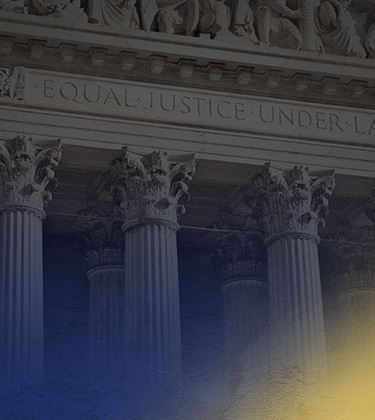
Fleming Island Mediation Attorneys
Helping Families Resolve Disputes in Clay County
When you are involved in a family law dispute, it can be difficult to see a way forward. You may be facing a contentious divorce, a child custody dispute, or a disagreement over how to divide your marital property. In these situations, it is easy to feel overwhelmed and unsure of what to do next.
At Owenby Law, P.A., we understand how challenging these situations can be. That is why we offer general mediation services to help you and your family find a resolution. Our Fleming Island general mediation lawyers can help you work through your issues and find a solution that works for everyone involved.
Call (904) 770-3141 or contact us online to schedule a consultation with our team today.
What is Mediation?
Mediation in family law refers to a method of resolving disputes between parties involved in family-related matters, such as divorce, child custody, visitation rights, and property division, among others. A neutral third party, known as the mediator, assists the involved parties in reaching a mutually acceptable agreement.
Common types of mediation in family law include:
- Divorce Mediation: Helps divorcing couples resolve issues like asset division, alimony, child custody, and support in a cooperative manner.
- Child Custody Mediation: Focuses specifically on determining a parenting plan, visitation schedules, and decision-making responsibilities regarding the children.
- Parenting Plan Mediation: Aims at creating or modifying a detailed parenting plan that outlines each parent's responsibilities and schedules regarding the children.
- Property and Asset Division Mediation: Assists in the fair distribution of assets and liabilities accumulated during the marriage or partnership.
- Alimony or Spousal Support Mediation: Addresses issues related to financial support for one spouse by the other post-divorce or separation.
- Elder Care Mediation: Resolves conflicts related to care arrangements, living situations, finances, and healthcare decisions involving elderly family members.
- Pre-nuptial or Post-nuptial Mediation: Helps couples in drafting or modifying prenuptial or postnuptial agreements, addressing various aspects of their relationship and potential future outcomes.
Mediation in family law provides a more collaborative and less adversarial approach compared to going to court. It allows the parties involved to have more control over the decisions and outcomes, often resulting in more satisfactory and personalized solutions tailored to the family's unique circumstances.
How Does Mediation Work in Florida?
The parties involved in the dispute usually select a mediator together. The mediator must be certified by the Florida Supreme Court and should be neutral and impartial. If the parties can't agree on a mediator, the court will appoint one.
The mediation session takes place in a neutral location, often the mediator's office. The mediator facilitates discussions between the parties, allowing each side to present their concerns, needs, and proposed solutions.
Mediation in Florida is confidential. Anything discussed during mediation cannot be used as evidence in court. This confidentiality allows for open discussions and encourages parties to explore potential solutions without fear of legal repercussions.
If the parties reach an agreement during mediation, it is put into writing and signed by both parties. This agreement becomes legally binding once approved by the court.
If the mediation does not result in an agreement, the case can proceed to trial. However, the parties are still encouraged to continue negotiations and explore settlement options.
While mediation is commonly required, certain situations—such as cases involving domestic violence or when one party is unwilling to negotiate—may exempt the case from mandatory mediation.
How Can Mediation Help in Family Law Cases?
Mediation offers several benefits compared to traditional litigation or adversarial methods of resolving disputes. Some of these advantages include:
- Control and Autonomy: Parties have more control over the decision-making process in mediation. They actively participate in crafting solutions that fit their unique circumstances and needs, rather than having a decision imposed upon them by a judge.
- Confidentiality: Discussions during mediation are confidential. This allows parties to speak openly without fear that their statements will be used against them in court. This confidentiality fosters a more honest and open exchange of information.
- Cost-Effectiveness: Mediation is often more cost-effective than going to court. It typically involves fewer legal fees and reduces the overall expenses associated with a lengthy court battle.
- Time-Efficient: Resolving disputes through mediation can be quicker than waiting for a court date, especially in cases where court dockets are congested. Parties can schedule mediation sessions at their convenience, expediting the resolution process.
- Preservation of Relationships: In family law matters, especially those involving children, maintaining a working relationship between the parties is often important. Mediation allows for a more amicable resolution, which can help preserve relationships, especially in cases of co-parenting after divorce.
- Flexibility and Creativity: Mediation encourages creative solutions tailored to the specific needs of the parties involved. This flexibility allows for agreements that might not be possible or permissible in a court-imposed decision.
- Less Adversarial Atmosphere: Unlike court proceedings that can be adversarial and combative, mediation promotes a cooperative environment. The focus is on finding common ground and reaching a mutually agreeable solution rather than on "winning" or "losing."
- High Success Rate: Mediation often has a high success rate in reaching agreements. When parties are actively engaged in finding solutions and are invested in the outcome, they are more likely to adhere to the agreements reached.
Overall, mediation offers a more collaborative, less stressful, and often more satisfying way to resolve disputes, particularly in family law matters, by allowing parties to have more control and involvement in the resolution process.
Why Choose Our Firm?
At Owenby Law, P.A., we are committed to helping our clients find a resolution to their family law disputes. We understand how challenging these situations can be and are here to provide the guidance and support you need. Our Fleming Island general mediation attorneys can help you understand your options and work with you to develop a strategy that meets your needs.
Contact us today at (904) 770-3141 to learn more information about the mediation process in Fleming Island.
How Can We Help?
-
 Meet Your Legal ProfessionalsWe put the time and care into your case that it deserves, and we are here to guide you through this process.
Meet Your Legal ProfessionalsWe put the time and care into your case that it deserves, and we are here to guide you through this process. -
 Handling All Aspects of the Legal ProcessWe are the reputable and reliable law firm you need on your side during your legal matter. We handle all types of cases!
Handling All Aspects of the Legal ProcessWe are the reputable and reliable law firm you need on your side during your legal matter. We handle all types of cases! -
 Answers to Your Legal QuestionsThe legal process can be daunting, and we understand you may have questions. Review our FAQ page to find helpful answers.
Answers to Your Legal QuestionsThe legal process can be daunting, and we understand you may have questions. Review our FAQ page to find helpful answers.
The Benefits of Hiring Owenby Law, P.A.
Owenby Law, P.A. is here to help you get the results you need with a team you can trust.
-
Free Initial Consultations
-
Successfully Handled Thousands of Cases
-
Backed by Over 20 Years of Experience
-
Personalized, Results-Oriented Representation
-
A Team of Compassionate Advocates On Your Side
-
Flexible Payment Plans Available


